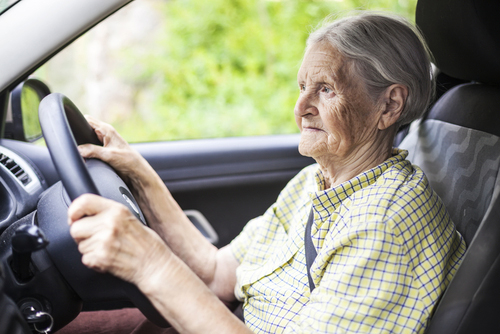
Driving is important for elderly people as it enables them to keep their independence. This is vital as it enables them to visit friends and family and live their life the way they choose.
Statistically senior drivers cause fewer accidents than younger drivers as they often avoid driving in situations they don’t feel confident in (at night, busy roads, etc.)
Like a lot of skills, driving is a skill that should be continually improved and practiced on a regular basis.
A lot of senior drivers choose to freshen up their driving skills by taking refresher lessons. These refresher lessons help to show senior drivers how to adjust their driving to suit their weaker vision and slower reflexes.
Issues Elderly Drivers Face
It is important to remember that people age in different ways, and it is not age in itself that affects someone’s driving ability but the health conditions that often go hand in hand with old age.
Eyesight Deterioration
The muscles that control the dilation of our pupils become less responsive as we reach old age which can make it a lot harder for us to see in the dark.
As well as a change to the muscles that control our pupil dilation our pupils also become smaller with age which can make it harder for us to see in the dark. A lot of senior drivers choose to avoid night time driving for this reason.
Our vision can cause other problems as we age as we will find the glare of the sun more intense which will reduce or peripheral vision. Light-responsive sunglasses can enable us to carry on driving in these situations.
Hearing Deterioration
Hearing loss can be dangerous when your on the road as it may prevent you from hearing important sounds like the high-pitched tones from emergency response vehicles. It can also prevent you from hearing other warning sounds particularly in situations where there is a lot of background noise.
Reaction Times
Stiffness or pain in joints or muscles can make it difficult for senior drivers to react quickly in an emergency. They can also be affected by their ability to process information quickly and react accordingly. Reaction times can be improved by:
- Increasing following distance
- Limiting left turns
- Eliminate distractions inside the vehicle
- Plan your route
- Avoid busy roads and congested traffic
- Talk to your doctor about your medication
- Take frequent breaks
Fatigue
As we age, we are more likely to suffer from fatigue so elderly drivers should avoid long journeys, especially after alcohol or eating a heavy meal.
Medication Side Effects
Medications often come with side effects which can affect your driving ability.
Frailty
As people age they become frail which can lead to them suffering more serious injuries in accidents.
Benefits of Refresher Lessons
Refresher lessons help you to iron out any bad habits you have picked up over the years, boost your confidence behind the wheel and teach you new skills.
Confidence
If you have taken a long break from driving, you may find you have lost your confidence in your driving ability. Refresher courses are a great way of boosting your confidence on the road.
A lot of road accidents are caused because of bad habits, simple mistakes or a gap in the driver’s knowledge on how to react in that kind of situation.
Environment
When you are in better control of your car you will use less fuel, which reduces the amount of pollution. It will also save you money as you will need to replace parts less often, and the wear and tear on items such as tires will be reduced.


